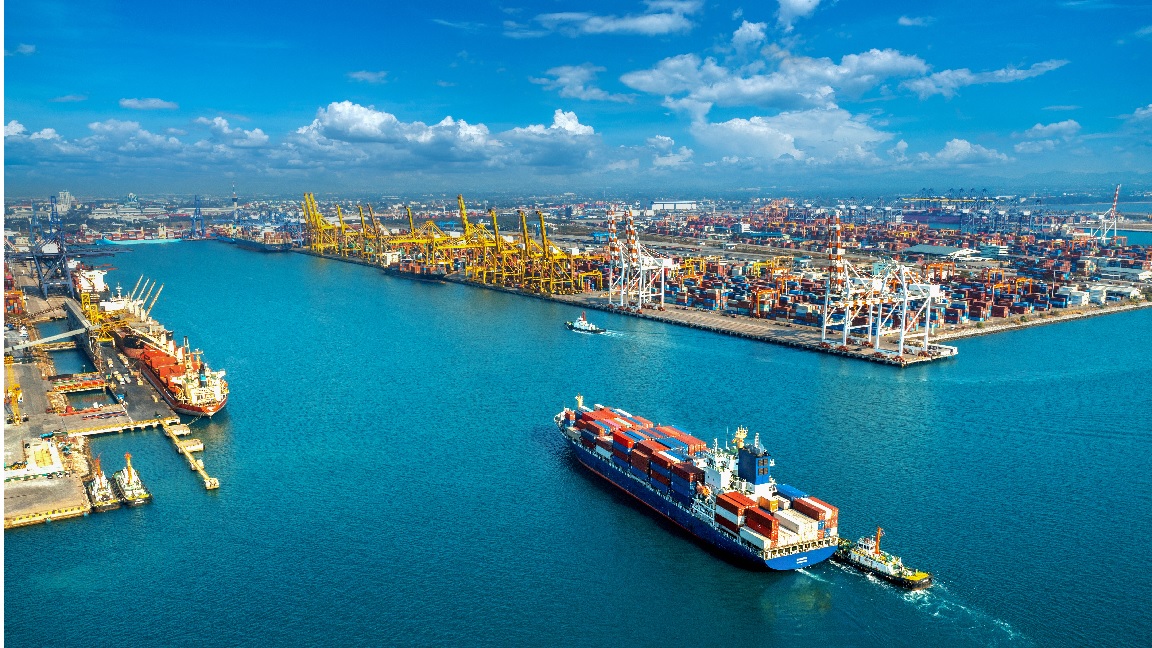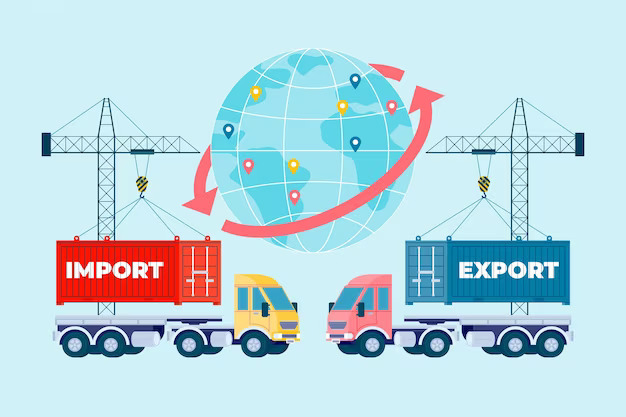One of the most popular methods for international trade is ocean cargo vessels or containers. Moving goods between international ports is well-known as ocean freight shipping. Millions of goods are packed in containers and moved between international ports every day. From automobiles to flammable material, cargo transportation through ocean freight has become convenient.
Do you know? 90% of international trade is done over the waves globally. But the question stands - Is Sea cargo shipping the right option? Why should a trader consider sea freight services? Are you curious to learn about the answers? Read more to know why it remains a preferred choice for businesses worldwide.
1. Cost-effective transportation:
One of the primary advantages of ocean freight shipping is its cost-effectiveness, especially for large and heavy shipments. If you compare it with other modes of transportation like air freight, ocean freight offers significantly lower rates per unit of weight or volume. This cost advantage becomes even more pronounced for long-distance cargo, making it an attractive option for businesses looking to manage their logistics expenses.
2. Global connectivity:
Another advantage of choosing sea freight shipping is the possible number of areas you can ship your cargo. When you decide to ship your goods by sea, it opens numerous destination options. There are roughly 800 ports worldwide. Therefore, opting for sea shipping is beneficial for traders who wish to transport their goods to different parts of the world.
With such a vast network of ports globally, sea freight shipping offers unparalleled global connectivity. This extensive reach enables businesses to access markets in remote corners of the world, boosting international trade and market expansion.
3. Opportunity for bulk shipping:
Sea freight is particularly advantageous for businesses that deal in bulk shipments. Companies that deal with commodities, such as minerals, grains, and fuels, benefit greatly from ocean freight's capacity to handle large quantities. Bulk shipping minimizes packaging costs, optimizes loading processes, and reduces overall transportation expenses.
4. Environment-friendly option:
An environmental disadvantage of air and other forms of transportation over maritime shipping is their significantly greater carbon footprints. Ships, on the other hand, are the mode of transportation that uses the least amount of carbon. As businesses focus on sustainability, sea freight offers a greener transportation alternative.
5. More reliable and safe:
Ocean freight shipping is known for its reliability and safety standards. Modern cargo vessels are equipped with advanced tracking and monitoring systems that allow real-time updates on the location and condition of the cargo. Additionally, the risks of accidents and theft are considerably lower for ocean freight, contributing to the overall security of the goods in transit.
No matter the kind of goods, sea freight services can handle anything from one port to another. Even if you deal with hazardous and flammable material, sea cargo companies are well-versed in handling such commodities.
6. Flexibility for various types of cargo:
Sea freight companies accommodate a wide range of cargo types, from raw materials to finished products. The availability of different container types, such as standard, refrigerated, and open-top containers, ensures that goods of various types can be transported with care and precision. Therefore, all kinds of trade businesses can opt for sea cargo services and let the service provider take the burden of transporting goods.
7. Fewer fluctuations in prices:
Sea freight shipping is well-known for its tendency to experience prices with fewer fluctuations compared to other modes of transportation, such as air freight. Sea freight shipping is less affected by rapid changes in fuel prices. Cargo ships have more efficient fuel consumption rates, and the impact of fuel cost fluctuations is spread out over longer journeys. This results in more predictable pricing structures for sea freight.
8. Less limitation on permitted goods.
Sea freight shipping offers fewer limitations on permitted goods compared to other modes of transportation. This flexibility is one of the key advantages that businesses consider when choosing sea freight as their preferred shipping method.
While security regulations are still in place for sea freight, it is less strict than air freight due to the nature of the transportation method. It can lead to smoother customs clearance processes and fewer restrictions on certain goods. Both air and sea logistics are used for international trade. But sea freight offers better advantages over air.
The Verdict
In conclusion, sea freight shipping has a plethora of benefits that cater to the diverse needs of businesses engaged in international trade. Its cost-effectiveness, high capacity, environmental friendliness, reliability, global connectivity, and flexibility make it an attractive choice. It is best for companies aiming to streamline their logistics operations. Moreover, the predictable pricing and the suitability for bulk shipments make sea cargo a preferred mode of transportation.
Ocean freight remains a reliable and versatile mode of transportation that supports businesses' growth, sustainability, and profitability goals. If you are into international trade business, these are the benefits you get when you choose a sea freight logistics company. Whether you are dealing with textile material or crude oil, you can rely on cargo shipping without a second thought.







